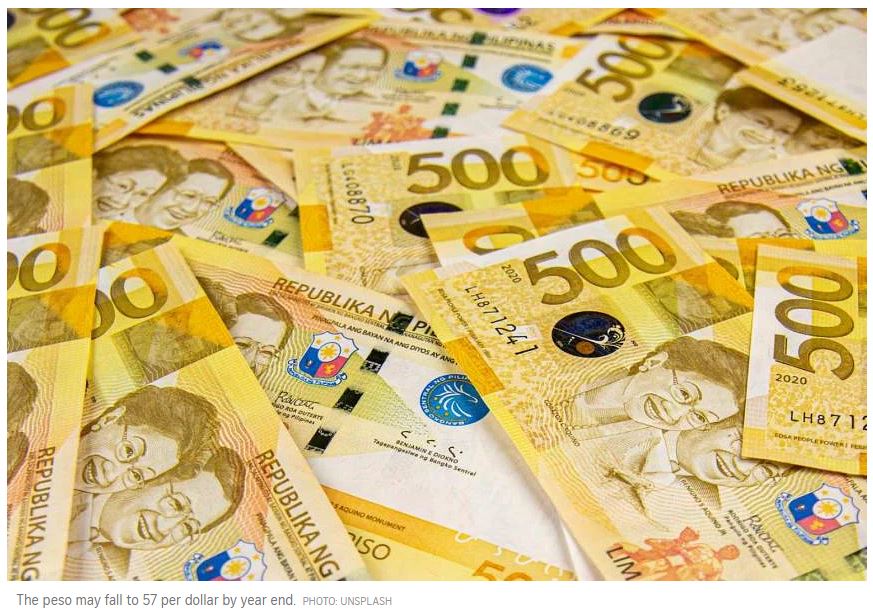Philippine peso slides to record low, boosting case for rate hikes
MANILA – The Philippine peso dropped to a record low on Friday (Sept 2), boosting pressure on the central bank to raise interest rates more aggressively to stem the slide.
The currency weakened beyond its previous all-time low set in 2004 after surging imports widened the trade deficit to a record high in June.
The peso has also come under pressure due to the increasing divergence between a hawkish United States Federal Reserve and a local central bank that has signalled it may slow the pace of interest rate hikes.
“We see the peso facing further weakness as imports increase, while exports are dragged down by weakening Chinese demand, widening the trade deficit,” said Ms Trinh Nguyen, a senior economist at Natixis in Hong Kong.
“A hawkish Federal Reserve also puts pressure on the peso, which means the central bank has to respond with jumbo hikes to arrest the slide.”
The peso slid as much as 0.9 per cent to a record low of 56.90 per US dollar, extending this year’s decline to 10 per cent. The currency is the third-worst performer in Asia in 2022, after the yen and South Korean won.
The peso may fall to 57 per dollar by year end, Ms Nguyen said.
The Philippine central bank could slow the pace of tightening after a series of interest rate hikes have likely contained inflation, governor Felipe Medalla said in August.
Policymakers are more likely to deliver one or two 25-basis point increases for the rest of the year, he told reporters. That was after the Bangko Sentral ng Pilipinas raised its benchmark by 50 basis points on Aug 18.
Mr Medalla is scheduled to speak at a Reuters event on Friday.
Emerging market currencies are weakening across the board as Fed interest rate hikes bolster the dollar, spurring central banks to drain hundreds of billions of dollars from their reserves to slow the declines. Philippine stock outflows are also adding to pressure on the peso, as overseas investors have sold a net US$1 billion (S$1.4 billion) of local equities this year. BLOOMBERG


 Thailand
Thailand




